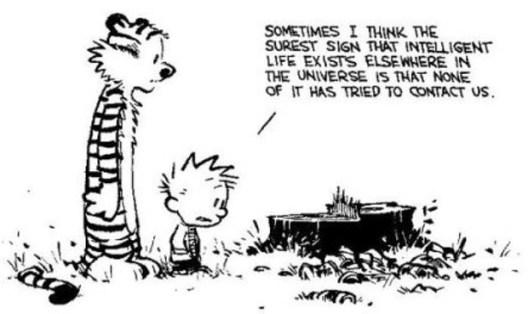So, if the math says it's likely that there are aliens … why don't we see them?
In 2020, I mentioned Israeli officials who claimed they had been contacted by Aliens from a Galactic Federation – and that not only is our government aware of this, but they are working together.
There are many stories (or theories) about how we have encountered aliens before and just kept them secret. Here are some links to things you might find interesting if you want to learn more about this.
- NewsNation Segment: UFO Whistleblower Jake Barber Shares Allegations and Will Testify to Congress About Nonhuman Craft Retrievals.
- NewsNation Segment: UFO whistleblower David Grusch: 'We are not alone.'
- Dr. Diana Walsh Pasulka, Professor of Religious Studies, bridges the gap between religious studies, technological advancements, and the realm of UFO phenomena.
- Trailer for a film called "The Phenomenon."
So, while some may still believe aliens don't exist – I think it's a more helpful thought experiment to wonder why we haven't seen them.
For example, the Fermi Paradox considers the apparent contradiction between the lack of evidence for extraterrestrial civilizations and the various high-probability estimates for their existence.
To simplify the issue, billions of stars in the Milky Way galaxy (which is only one of many galaxies) are similar to our Sun. Consequently, there must be some probability that some of them will have Earth-like planets. It isn't hard to conceive that some of those planets should be older than ours, and thus some fraction should be more technologically advanced than us. Even if you assume they're only looking at evolutions of our current technologies, interstellar travel isn't absurd.
Thus, based on the law of really large numbers (both in terms of the number of planets and length of time we are talking about) … it makes the silence all the more deafening and curious.
If you are interested in the topic "Where are all the aliens?" Stephen Webb, a particle physicist, tackles that in his book and this TED Talk.
via TED
In the TED talk, Stephen Webb covers a couple of key factors necessary for communicative space-faring life.
- Habitability and stability of their planet
- Building blocks of life
- Technological advancement
- Socialness/Communication technologies
But he also acknowledges the numerous confounding variables, including things like imperialism, war, bioterrorism, fear, the moon's effect on climate, etc.
Essentially, his thesis is that there are numerous roadblocks to intelligent life, and it's entirely possible we are the only planet that has gotten past those roadblocks. Even if there were others, it's entirely possible that they're extinct by now.

What do you think?
Here are some other links I liked on this topic. There is some interesting stuff you don't have to be a rocket scientist to understand or enjoy.
- 75 Reasons We Don't See Aliens
- Wait But Why: The Fermi Paradox
- A New Theory on Why We Haven't Found Aliens Yet
- A List of Solutions to The Fermi Paradox
- Dissolving the Fermi Paradox, Future of Humanity Institute, Oxford University
To Infinity and Beyond!

Leave a Reply